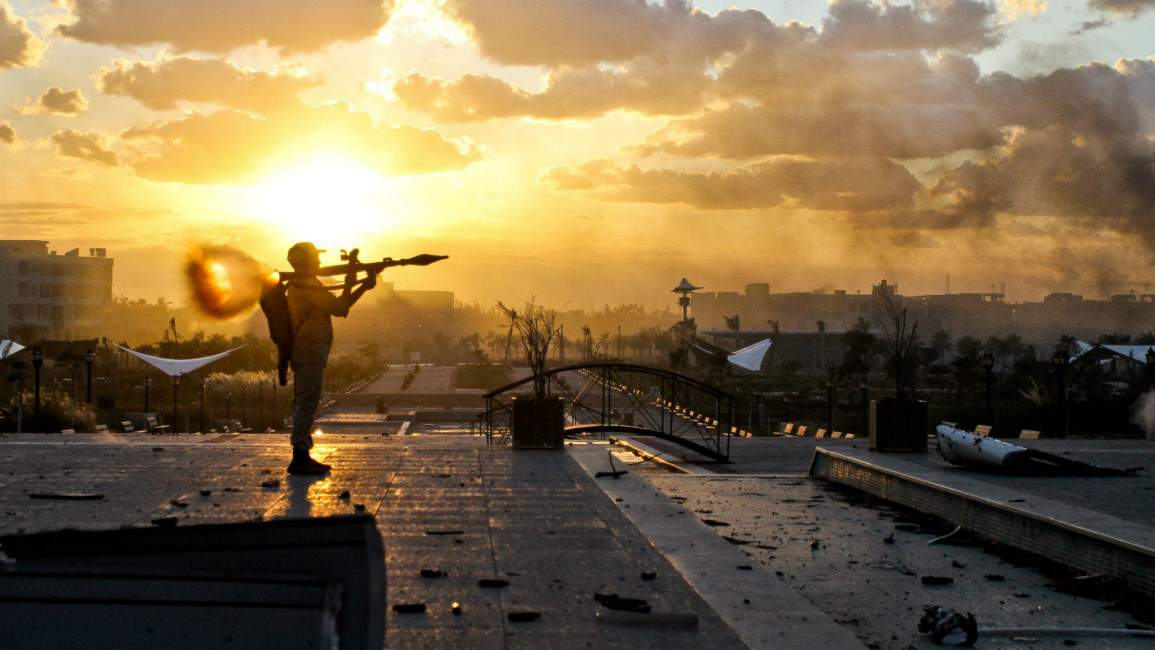Russia, China abstain on UN vote to punish Libya rapists
Russia, China abstain on UN vote to punish Libya rapists
Russia and China have abstained on a UN vote to punish perpetrators of sexual violence in Libya.
2 min read
UN officials have warned that militia members often resort to rape in Libya (Getty)
The British-drafted resolution renewing sanctions on Libya was adopted by a vote of 13 in favor in the 15-member council.
Russia and China abstained but did not use their veto power to block the measure that expanded the criteria for applying sanctions to include gender-based violence.
Russian Ambassador Vassily Nebenzia accused the Netherlands and Sweden, which pushed for the new sanctions criteria, of trying to score political points at home.
"This is populism distilled in its purest form," Nebenzia told the council, who noted that preventing sex crimes in Sweden and the Netherlands "is the remit of the national governments."
"Sexual and gender-based violence are part of crime in any specific country," said the ambassador, adding that the council should focus on threats to international security.
The council has added sexual violence as a criteria for sanctions in recent resolutions on the Central African Republic and South Sudan.
Swedish Deputy Ambassador Carl Skau said he hoped that adding the new sanctions criteria will have a "deterrent effect and that there will be accountability for such crimes."
Dutch Ambassador Karel van Oosterom said it was "an important step forward" for the UN council to slap sanctions on perpetrators of sexual violence "for instance in the refugee camps that rape women refugees."
UN officials have warned that militia members, migrant smugglers and criminal gangs often resort to rape in Libya.
Russia and China abstained but did not use their veto power to block the measure that expanded the criteria for applying sanctions to include gender-based violence.
Russian Ambassador Vassily Nebenzia accused the Netherlands and Sweden, which pushed for the new sanctions criteria, of trying to score political points at home.
"This is populism distilled in its purest form," Nebenzia told the council, who noted that preventing sex crimes in Sweden and the Netherlands "is the remit of the national governments."
"Sexual and gender-based violence are part of crime in any specific country," said the ambassador, adding that the council should focus on threats to international security.
The council has added sexual violence as a criteria for sanctions in recent resolutions on the Central African Republic and South Sudan.
Swedish Deputy Ambassador Carl Skau said he hoped that adding the new sanctions criteria will have a "deterrent effect and that there will be accountability for such crimes."
Dutch Ambassador Karel van Oosterom said it was "an important step forward" for the UN council to slap sanctions on perpetrators of sexual violence "for instance in the refugee camps that rape women refugees."
UN officials have warned that militia members, migrant smugglers and criminal gangs often resort to rape in Libya.
The council in June for the first time imposed sanctions on six individuals linked to Libyan migrant trafficking networks.



